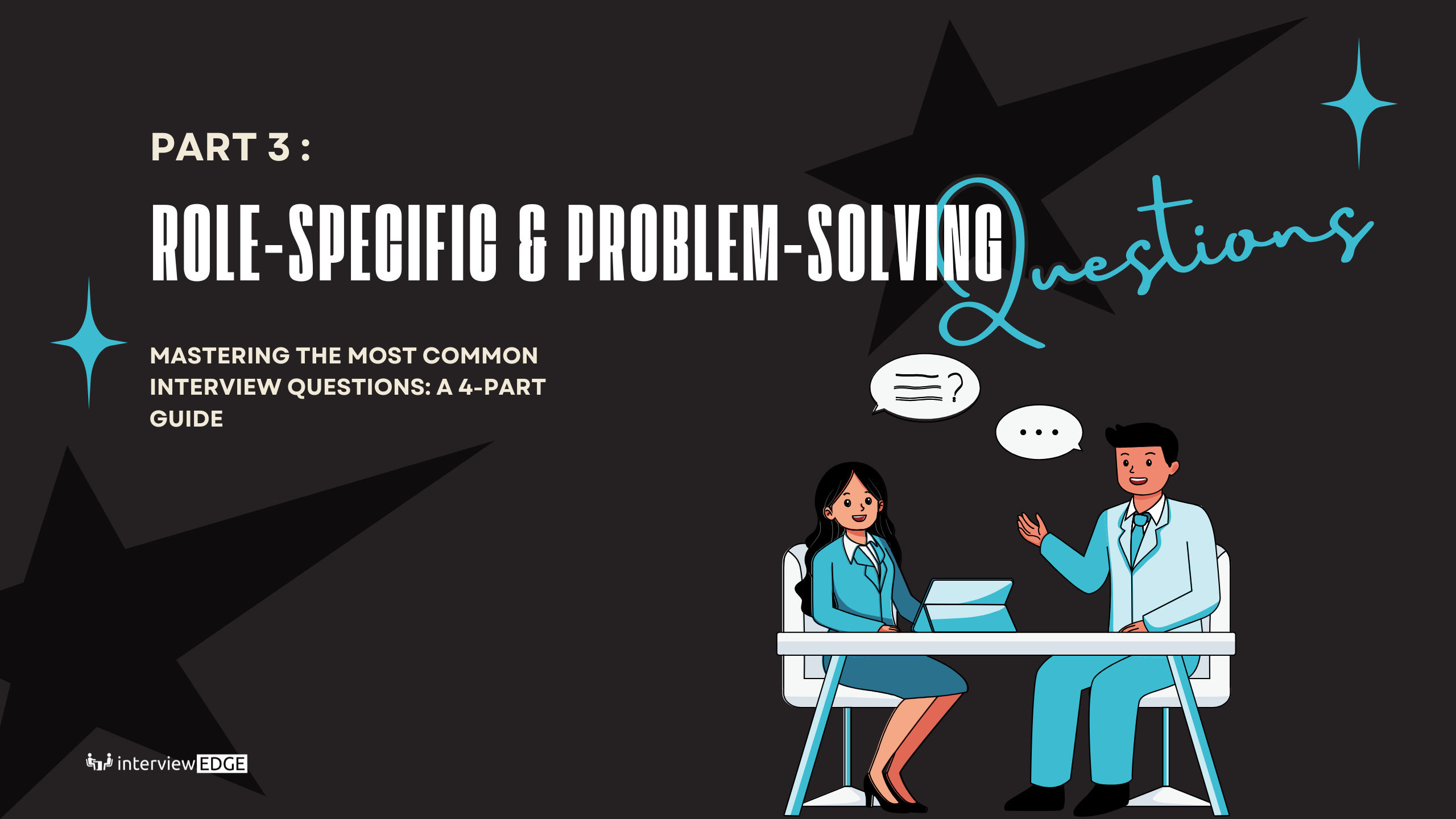
How to Answer Questions That Test Your Thinking & Expertise
Every job has its own unique challenges, and employers want to see how well you understand the role and handle tough situations. These questions help them gauge your problem-solving ability, decision-making skills, and industry knowledge.
-
How do you prioritize tasks?
✅ Show logical thinking.
✅ Mention time management tools or techniques.
✅ Give an example of a successful prioritization.
Example: For a hospital administrator:
“I categorize tasks based on urgency and impact. In my previous role, we faced a sudden staff shortage, so I prioritized patient care assignments first while managing administrative work in parallel.”
For a software engineer:
“I follow the Eisenhower Matrix, classifying tasks into urgent-important categories. When managing multiple feature releases, I ensure critical bug fixes are addressed first, followed by performance optimizations.”
-
What motivates you?
✅ Keep it role-related.
✅ Link motivation to personal growth & company success.
Example: For a sales professional:
“I thrive on achieving targets and helping customers find the right solutions. Closing a big deal after understanding a client’s needs is what drives me.”
For a government officer:
“My motivation comes from public service and policy implementation. Seeing my efforts translate into real benefits for people keeps me going.”
-
What are your career goals?
✅ Show ambition but be realistic.
✅ Align your goals with the company’s growth.
Example: For a banking professional:
“In five years, I see myself handling major corporate accounts, developing expertise in risk assessment, and contributing to my bank’s expansion.”
For a startup employee:
“I want to gain deep expertise in product development and eventually take on a leadership role in shaping tech-driven solutions.”
-
How do you keep up with industry trends?
✅ Mention sources (books, online platforms, conferences, networking).
✅ Give an example of applying new knowledge.
Example: For an HR professional:
“I actively follow HR forums, attend industry webinars, and keep track of evolving labor laws to ensure our hiring policies stay compliant and competitive.”
For an investment banker:
“I regularly read reports from SEBI, RBI, and financial journals to stay updated on market trends, which helps in making informed investment recommendations.”
-
What would you do if you disagreed with your manager?
✅ Show diplomacy and problem-solving.
✅ Emphasize constructive discussions.
Example: For a consulting role:
“If I disagreed, I’d first try to understand my manager’s perspective. If I had data supporting my view, I’d present it respectfully and suggest an alternative approach.”
For a teacher:
“If I disagreed with a new teaching method, I’d discuss my concerns with the principal, share student feedback, and collaboratively find a better approach.”
-
How would you handle multiple projects with the same deadline?
✅ Show multitasking skills.
✅ Talk about delegation, time-blocking, and prioritization.
Example: For an architect:
“I break projects into milestones, delegate tasks where possible, and set early internal deadlines to ensure smooth execution.”
For a digital marketer:
“I use project management tools like Trello and Asana to track campaigns, ensuring tasks are completed on time without compromising quality.”
-
Tell me about a time you improved a process.
✅ Show problem-solving and efficiency improvement.
✅ Give a measurable outcome.
Example: For a logistics manager:
“I streamlined our supply chain by automating inventory tracking, reducing delivery delays by 25%.”
For a customer service lead:
“I introduced a chatbot for common queries, cutting response time by 40% and increasing customer satisfaction scores.”
Final Thoughts
Role-specific questions assess how well you understand the job’s challenges. Be ready with real examples that showcase your industry knowledge, decision-making skills, and ability to adapt.
Next up, Part 4: Salary, Closing, & Final Questions. We’ll break down how to confidently discuss salary expectations, wrap up your interview on a strong note, and leave a lasting impression. Stay tuned!

One comment on “Part 3: Role-Specific & Problem-Solving Questions”